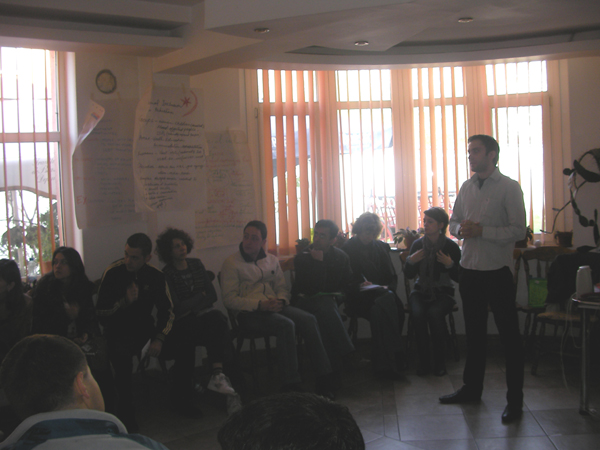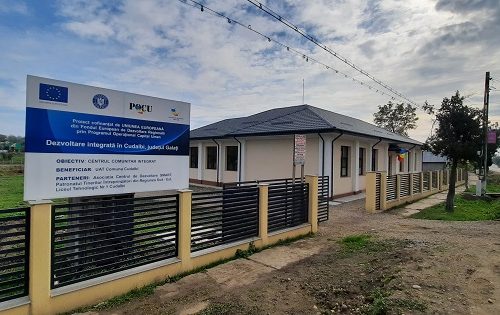Training ENGAGEMENT with international participants in Craiova, Romania, addressing the problem of gipsies in Europe

In April 2011, I had the great pleasure to deliver the training ENGAGEMENT for the second time, with participants from nine countries: Romania, Moldova, Bulgaria, Italy, Serbia, Lithuania, Turkey, Macedonia, and Armenia. We tackled a problem of European public concern raised on the citizen engagement platform www.public-policies.eu, entitled “ Stateless Rroma, no documents – no rights.” Following the methodology of the training, during one full day of work, participants identified solutions to address the problem, analyzed policy options and made a policy paper that was sent to Mr. Laszlo Andor, European Commissioner for Employment, Social Affairs and Inclusion and Thomas Hammarberg, Human Rights Commissioner at the Council of Europe. By the time of the training, the problem had received one solution from a Romanian citizen. So, participants first brainstormed solution ideas inspired from the situation in their countries and good practice examples:
Then, moderators from every group posted their solutions on the problem’s page and made plenary presentations of their proposals:
As a result of the solutions identified by the participants, we discovered four options to address the problem: maintaining the status quo, stimulating economic activities through employment and business ownership, developing educational programs and insertion/reinsertion in the formal educational system, and governmental representation and the rule of law. In the next step, we used the World Caffee to brainstorm what happens in every scenario. All participants had the chance to offer input for the four options:
Moderators then made plenary presentations of every option:
The next day, the team of SMART Method of Public Policy analyzed every option and made the draft policy paper that was presented to the participants. The final recommendation reads as follows: To effectively address the problems of Rroma in Europe, a holistic and integrated policy could be launched both at a European level and at country levels. The policy should be supported by good funding and the allocation of grants should be made with the involvement of consulting companies that are proficient in dealing with the bureaucracy. This will make sure that Rroma organizations focus on the activities of the projects and their effective impact in the community and not on doing paper work. We call upon the Council of Europe and the European Commission to join their resources and efforts to urge member states start implementing Rroma policies more efficiently and effectively, but at the same time to offer adequate funding. By 2020, no Rroma should face hunger and discrimination and should be offered the chance to have a decent place to live, access to education and access to entrepreneurial opportunities within the legal system. The holistic policy should contain at least three areas of concentration: stimulating economic activities through employment and business ownership, developing educational programs and insertion/reinsertion in the formal educational system and governmental representation and the rule of law. Member States could be encouraged to adjust the specific measures taking into consideration the situation of Rroma from their countries, but they should all have the same goals for 2020: no Rroma in Europe without guaranteed basic access to education, social services and economic opportunities.
The policy paper can be downloaded from the problem’s page. We are also going to publish there the response we receive from the European Commission and/or the Council of Europe. I congratulate the Center for Sustainable Community Development Giubega – Dolj County and its partners, for making this training possible! The training ENGAGEMENT serves SMART Method of Public Policy, offering a mix of online and offline participation tools using the World Caffee, to get more interactivity and leverage to the participation process.























